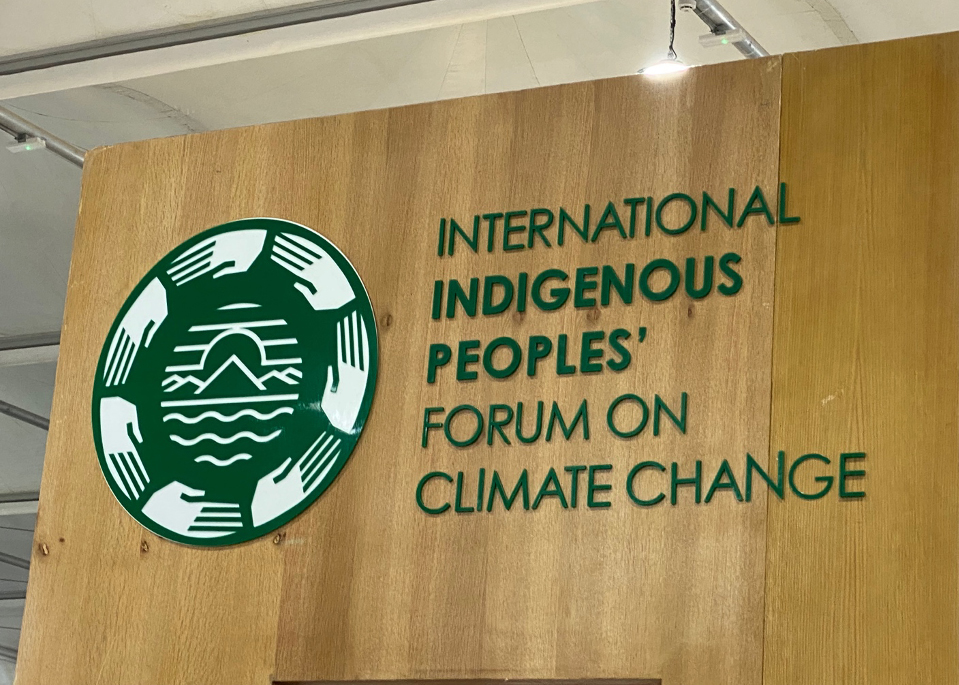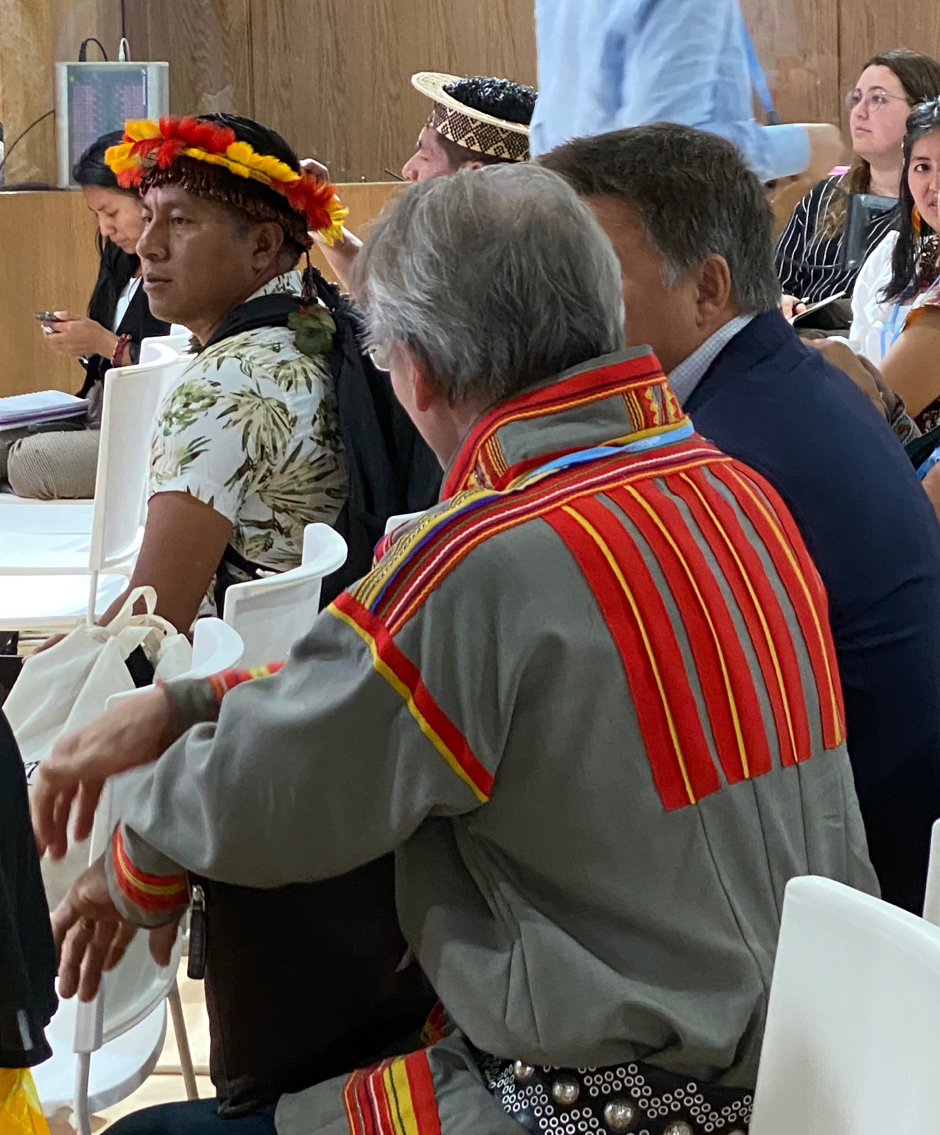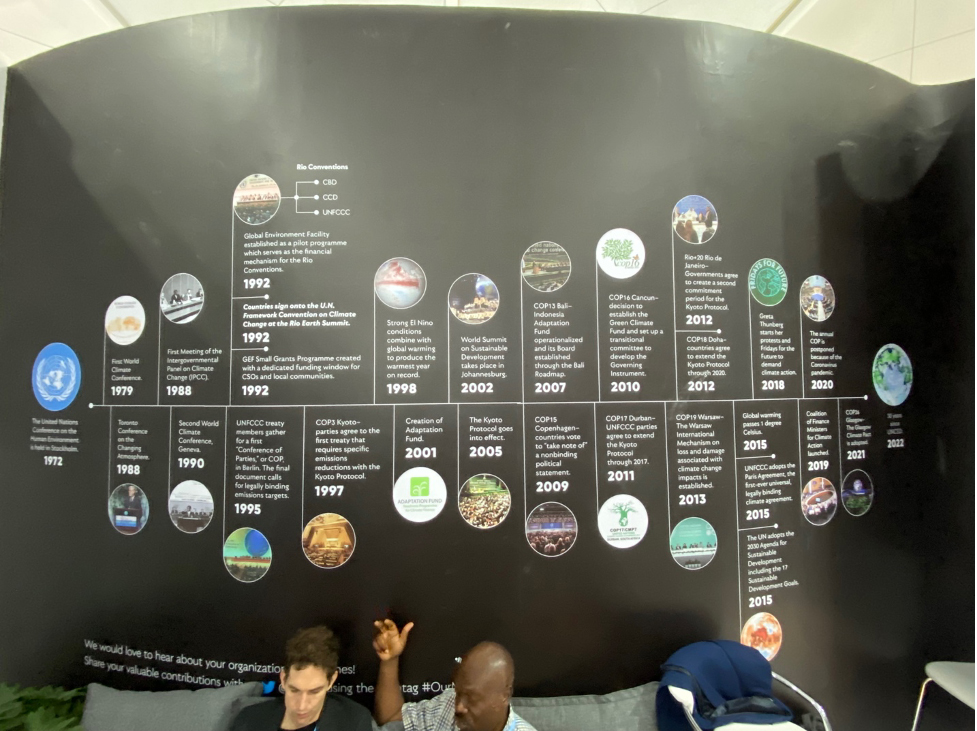New England Forestry Foundation (NEFF) Deputy Director and Climate Fellow Andi Colnes is live blogging from United Nations climate-change conference COP27 in Egypt from Nov. 14-17. Read about her second day below.
Writing by Andrea Colnes. Pictured above: A side event in the Youth for Climate pavilion.
I’m standing in the Intergovernmental Panel on Climate Change (IPCC) Climate for Action Pavilion, learning about implementation of REDD+—Reducing Emissions From Deforestation and Forest Degradation in Developing Countries—and the status of efforts to mitigate climate change through forest management and protection via ‘results-based financing’ across developing countries. This session is part of the IPCC’s work exploring the potential of nature-based solutions—what are they about, and are they only for high-income countries or can they work in low-income countries as well?
But, what really is the IPCC and why does it matter?
If you’re part of NEFF’s circle, you probably know by now that we often cite the IPCC and their findings that forests are central to carbon removal and that sustainable management of forests and their protection from loss and degradation are key to achieving the global climate goal of limiting global warming to 1.5 degrees Celsius.
But, unless you’re in the thick of climate work, it’s really hard to keep track of all the players and acronyms. So, here at COP27, I thought I’d take a moment to understand and explain what the IPCC is and the role it plays in supporting global climate action.
The IPCC is a global network of scientists that work to tell the world and policy makers what is happening on climate—where we are and where we need to go, looking at our past, present and future climate. The IPCC then identifies options and pathways for action and tells the world where the impacts are greatest.
What’s really cool is that the IPCC bases their work on input from hundreds of the world’s best scientists who come together to volunteer their time and research to underpin the global climate conversation. This robust body of work is then reviewed by governments and policy makers in a rigorous and transparent process.
The following video brings this complex source of global climate information into clearer focus.
So, again, why does all this matter to NEFF and our efforts to advance Exemplary Forestry on our lands and across New England? Because, as the IPCC notes, “We are not on track to achieve a climate-resilient sustainable world. And, without immediate and deep emissions reductions across all sectors, limiting global warming to 1.5°C is beyond reach.”
But in report after report, the IPCC identifies forests as a big part of the climate solution—both through protecting unmanaged wilderness area, and through improving management of working forests and using their wood to substitute for more carbon-intensive steel and concrete. This we know at NEFF. This is what so much of our work and vision is about. From the IPCC and the global COP27 stage to what we are doing, on the ground in our small, precious corner of the globe. Bring it home, lead by example and take advantage of the world’s best scientists to do so.
Additional Photos

The International Indigenous Peoples’ Forum on Climate Change at COP27, photo by Andi Colnes

The International Indigenous Peoples’ Forum on Climate Change at COP27, photo by Andi Colnes

A history of past climate action like the Kyoto Protocol and COP conferences
Related Posts
New England Forestry Foundation Heads To COP27 | November 10
NEFF at COP27: Day 1 | November 14
NEFF at COP27: Day 2 | November 15
NEFF at COP27: Day 3 | November 16
NEFF at COP27: Day 4 | November 17
COP27 Wrapup—What Did We Learn? | November 22


